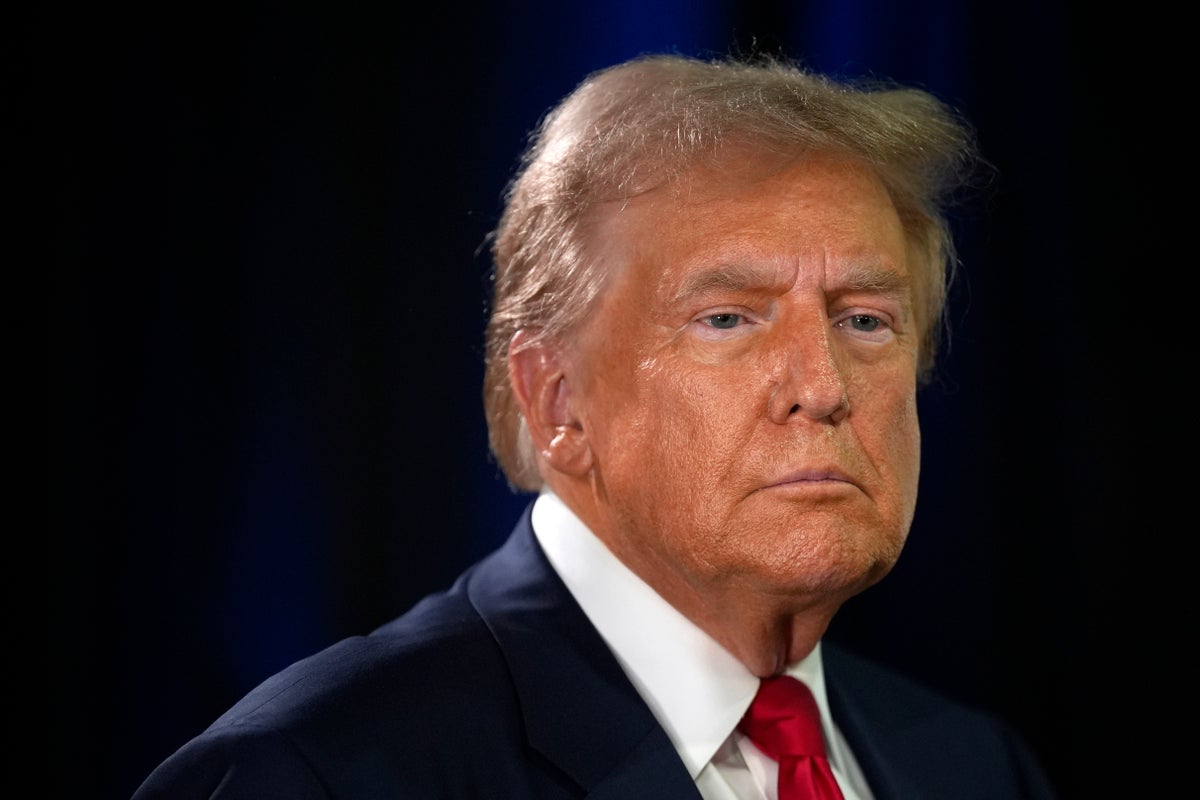
Your support helps us to tell the story
The judge overseeing Donald Trump’s election interference case in Georgia has dropped two more of the charges against him.
Fulton County Superior Court Judge Scott McAfee has once again slightly narrowed the scope of a sweeping indictment against the former president and more than a dozen of his allies, who are accused of joining a criminal enterprise to overturn his election loss in 2020 through a pressure campaign mounted against state officials and election workers.
Judge McAfee had dismissed three other counts against the former president earlier this year.
His decision on Thursday determined that two of the counts against the former president could no longer stand because they involve allegations of perjury or false statements that he says should fall under federal jurisdiction.
Because those counts “lie beyond this State’s jurisdiction and must be quashed, the Defendants’ motions to dismiss the indictment under the Supremacy Clause are granted in part,” he wrote.
The judge did not, however, dismiss the entire indictment.
Trump was initially charged with 13 counts in the 41-count indictment. The top charge of racketeering under the state’s RICO statute – used to prosecute organized crime and break up criminal gangs — remains.
Trump’s attorney Steve Sadow celebrated the decision.
“President Trump and his legal team in Georgia have prevailed once again,” he said in a statement on Thursday.
The case is effectively frozen while Trump and his co-defendants appeal a decision that kept Fulton County District Attorney Fani Willis on the prosecution team after she had a relationship with a special prosecutor.
That appeal won’t be heard until December.
The Supreme Court’s “immunity” decision in Trump’s parallel federal election interference case has also thrown a wrench in the proceedings, derailing any chance that the former president will face a trial for his allegedly criminal efforts to reverse his election loss before voters cast their ballots in November.
Trump and his co-defendants are accused of promoting a so-called “fake elector” scheme to falsely assert his victory in a state he lost to Joe Biden; pressuring election workers and state officials; and seizing vote information from machines in another county in the state.
Four of Trump’s initial co-defendants — including former Trump-linked attorneys Kenneth Chesebro, Jenna Ellis and Sidney Powell — pleaded guilty after reaching plea deals with prosecutors.
His former White House chief of staff Mark Meadows has tried to move the case to federal court, citing the Supreme Court’s “immunity” ruling in an attempt to evade charges for what he said were his official duties as Trump’s top aide.
The remaining defendants have pleaded not guilty.







